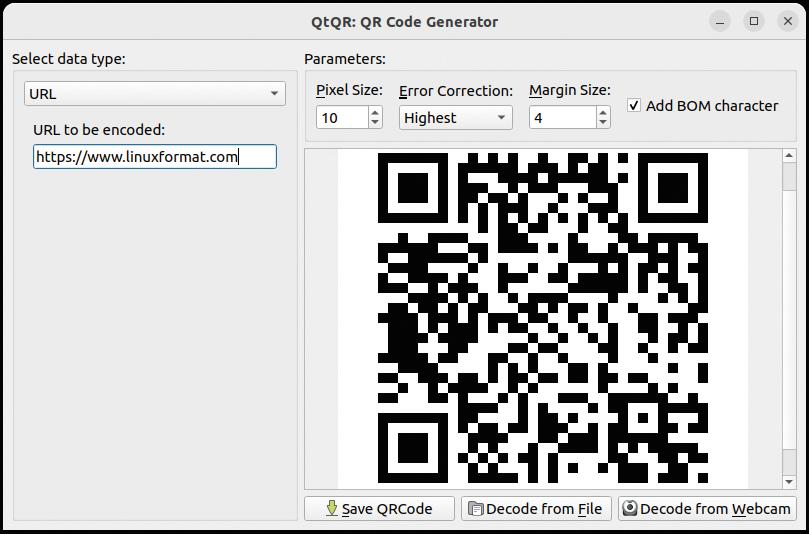
QR codes, those two-dimensional barcodes that whisk you off to a web page when you scan them with your phone, have had a chequered history. Invented in the ’90s and used extensively in Japan, their belated introduction to the rest of the world was short-lived before heading for apparent extinction. You’ll probably have noticed, though, that they’re now enjoying a resurgence in popularity. Fuelled by their use during the Covid pandemic – remember having to scan QR codes to enter restaurants and pubs? – we’re now seeing them everywhere as everyone has been trained up to use them.
If you own a business, putting a code on your business card or brochure makes it far easier for potential clients to access your website. If you edit a newsletter for your sports team, code club or local community, QR codes can engage your readers better than a printed URL. What’s more, some publications allow images in their small advertisement columns, so using QR codes there is another option. But here’s an interesting thing: recent surveys have shown – hardly surprisingly – that if you move away from a boring black-and-white matrix to something more creative, you’ll get far more hits. So, the subject of this tutorial is how to create artistic QR codes.
The basic code Our approach for creating QR codes that stand out from the crowd is to create an ordinary QR code and edit it. Because while there are plenty of tools for generating basic ordinary QR codes, we don’t know of any Linux utilities for producing artistic variants, but we do have some good image-editing tools, such as GIMP, which we’re using here.
This story is from the February 2023 edition of Linux Format.
Start your 7-day Magzter GOLD free trial to access thousands of curated premium stories, and 9,000+ magazines and newspapers.
Already a subscriber ? Sign In
This story is from the February 2023 edition of Linux Format.
Start your 7-day Magzter GOLD free trial to access thousands of curated premium stories, and 9,000+ magazines and newspapers.
Already a subscriber? Sign In

Create your first WebSocket service
Mihalis Tsoukalos explains how to use the Go programming language to work with the WebSocket protocol.

Fantastic Mr Firefox
Nick Peers takes a trip down memory lane to reveal the story behind the rise - and slight fall - of Mozilla's popular web browser.

Set up your terminal and email like it's 1983
Jump in the hot terminal time machine with Mats Tage Axelsson who emails from the command line using the latest technology.

Universal layer text effects with GIMP
Posters use them, films and presentations are hard to imagine without them: text effects. Attract attention with Karsten Günther and GIMP.

Jump to a federated social network
Nick Peers reveals how you can get up and running with this free, decentralised and non-profit alternative to Twitter.

Free our SOFTWARE!
Taking anything for granted is dangerous, so Jonni Bidwell and Mike Saunders revisit how the free software movement got started to help free us from proprietary tyranny!

Master RPI.GPIO
Les Pounder goes back to the early days of the Raspberry Pi - and his career with this classic library! -

Waveshare Zero to Pi3
Transform your Pi Zero into a Pi 3, they promised Les Pounder, but it's more like adding on go-faster stripes.

The Best OPEN SOURCE Software Ever!
In an attempt to trigger controversy, Michael Reed and Neil Mohr unequivocally state these are the greatest free software apps ever. Probably. We’re just trying to be helpful.

Linux-Mandrake 7
Simplicity and a wide range of applications make this a great distribution for all Linux users.